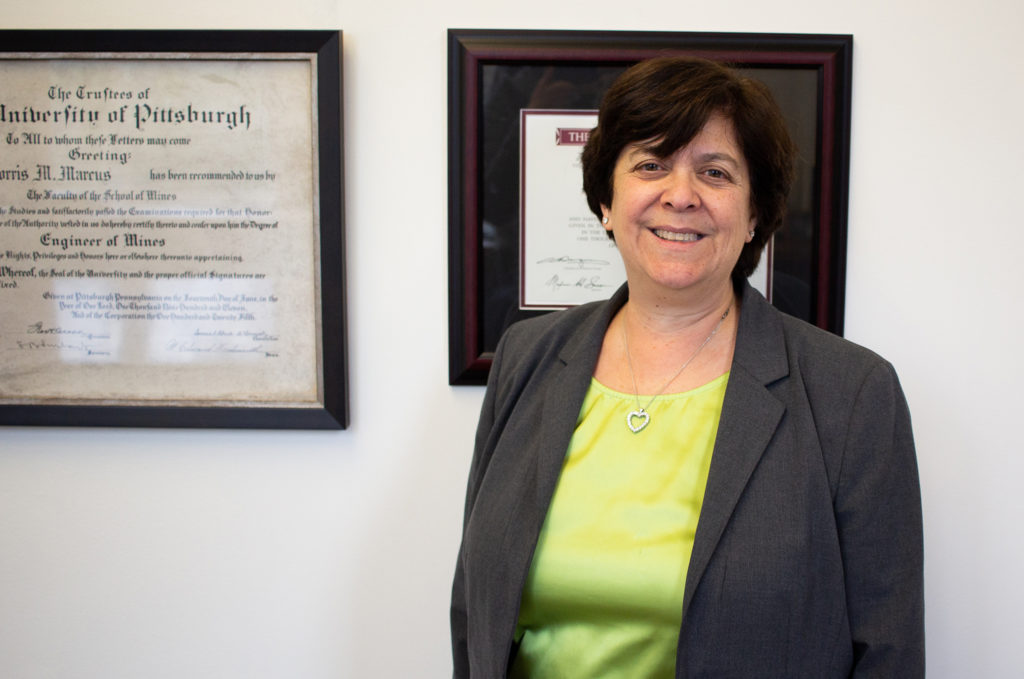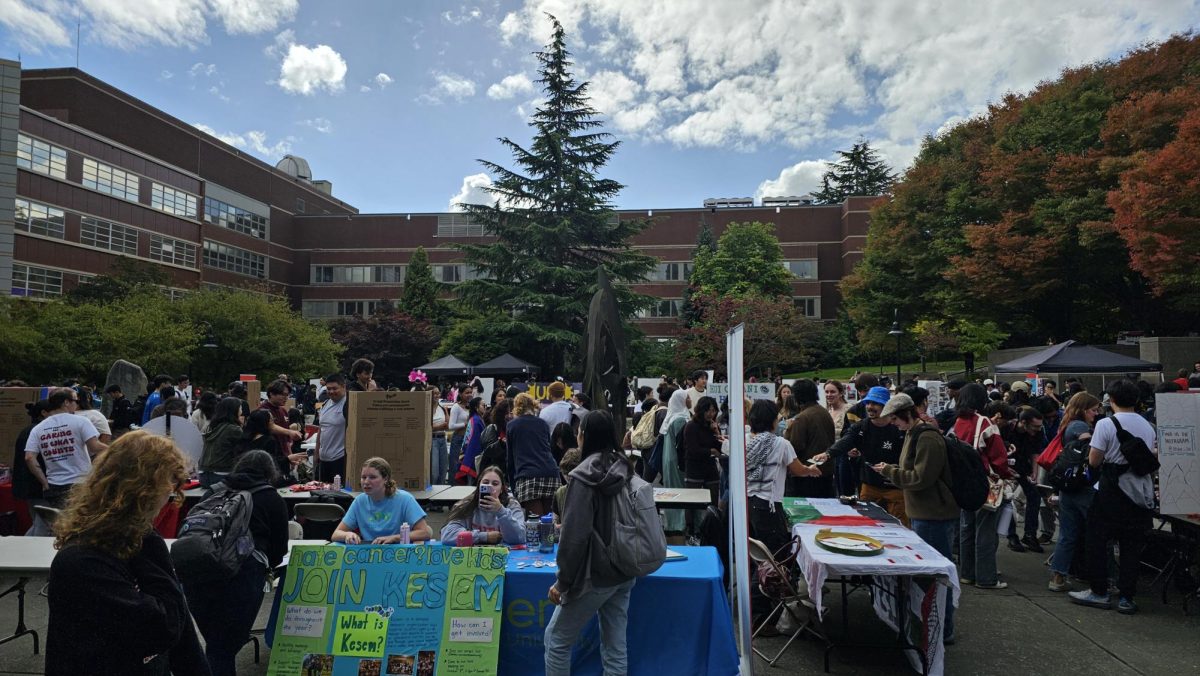Seven years ago, as Executive Vice President Tim Leary was considering Connie Kanter for the job as Chief Finance Officer, he wanted to know what kind of experience she had in higher education. And speaking about herself, Kanter said she quite frankly didn’t have any.
“[I have an] incredible appreciation that the university took a chance on me,” Kanter said. “I was the darkest of horses that could have been in that race.”
Prior to what would turn into a seven-year career at Seattle University, Kanter worked in sales at a beauty company.
“It was so vacuous. Oh my god,” she said. “It was an amazing company…but we got a lot of fan mail that started with ‘I love my [product]; it’s changed my life,’ which really made me think ‘What is your life?’”
She said she needed something more fulfilling; waking up at 5:30 a.m., she wanted to make a difference in ways other than helping someone “be a trophy wife.”

Connie Kanter showing us her fathers diploma from the University of Pittsburgh. Connie will be leaving Seattle U for a job at the Semis Foundation.
In her time at Seattle U, Kanter would complete several major projects, including Vi Hilbert Hall and a ten-year facilities plan—contained in a large binder she pointed to on her shelf—in which she had outlined how to pay for every single item in the plan.
As CFO Kanter didn’t always agree with the official view of Seattle U. One decision where she split from the university in its public view is their decision to divest from fossil fuels in September.
“Given the role that I’m in, I’m actually not allowed to have personal opinions,” she said. “There are certain things where what Connie Kanter might think is right personally in her private life may not be what I think is right for the university as CFO.”
That being said, Kanter points to two different reasons for her view.
“As CFO for Seattle University, I believe the decision to divest from fossil fuels was an ill-advised decision,” she said. “I think it was ill-advised for two reasons, frankly. First is the impact on the university in terms of its endowment. … At the end of 10 years, we’ll probably have 20 million less in our endowment than we would have otherwise.”
Second, in terms of the purpose of divestment, Kanter doesn’t believe it to be an effective statement to make.
“I’m not sure how to say this in a way that’s kind and respectful, but people that know me know I just say what I think,” Kanter said. “I don’t believe that Seattle University with an endowment of 200 million dollars making a statement of this nature is something that the world’s listening to…So for the stated goal of making a public statement, I don’t think it’s effective given the size and the nature and the stature of Seattle U, and from a implementation perspective, I think that there’s a hit we’re taking that’s significant.”
Kanter originally came into higher education on a whim, but she stayed because of the deep impact a university has on students’ lives.
“I’ll miss the students, certainly I’ll miss the faculty here and the staff here that I’ve developed relationships with,” she said. “We’re providing students the tools to be able to go out and fulfill their dreams in the world…There’s that youthful enthusiasm. There’s nothing like a college student.”
On the other hand, Kanter expressed that she felt deeply disappointed that the university couldn’t meet the needs of students.
“It breaks our hearts, but we can’t do it. We just can’t do it. And I didn’t realize there was as much of a gap as there is,” she said. “I wish we had the resources financially to be able to meet the full needs of our students…It was such a heartbreak to realize that.”
Kanter will soon start her new job as CEO at the Samis Foundation, a Washington-based non-profit that does work in in-state Jewish state schools, as well as wildlife conservation, archaeological, and other work in Israel.
This new job will engage on a deeper level with her Jewish faith, which she holds as an important part of her identity.
“I think I’ve been more of a public face of Jewishness at the university than somebody different from me might have been in this role,” she said. “I have to go home early in the winter when the sun sets early, or I’m taking holidays off, or I walked home eight miles after a meeting once because it was on a holiday.”
In that sense, Kanter said she is looking forward to no longer being an “outsider” at a Catholic university. On the other hand, Kanter thinks it may be harder in that her work will be in a very personal part of her life.
She said that it will be harder to draw boundaries with work because she may go to synagogue and see work associates and community members there, and her religious life and work life may be closely tied.
“On the positive side, I’m spending my energies and my time in a community that is my community that I’m excited about building and strengthening,” she said. “And that same community will be a pain in the butt sometimes. Eh, that’s life.”
That being said, Kanter identifies as an extrovert—her Myers-Briggs personality type is ESTJ, and she sees herself in all five facets of extroversion. She loves people more than nothing else.
“I do believe that one of the gifts that I’ve been given is being able to see those sparks of divinity in people that sometimes others don’t see. Even people that can be annoying sometimes.”
Josh may be reached at
[email protected]









